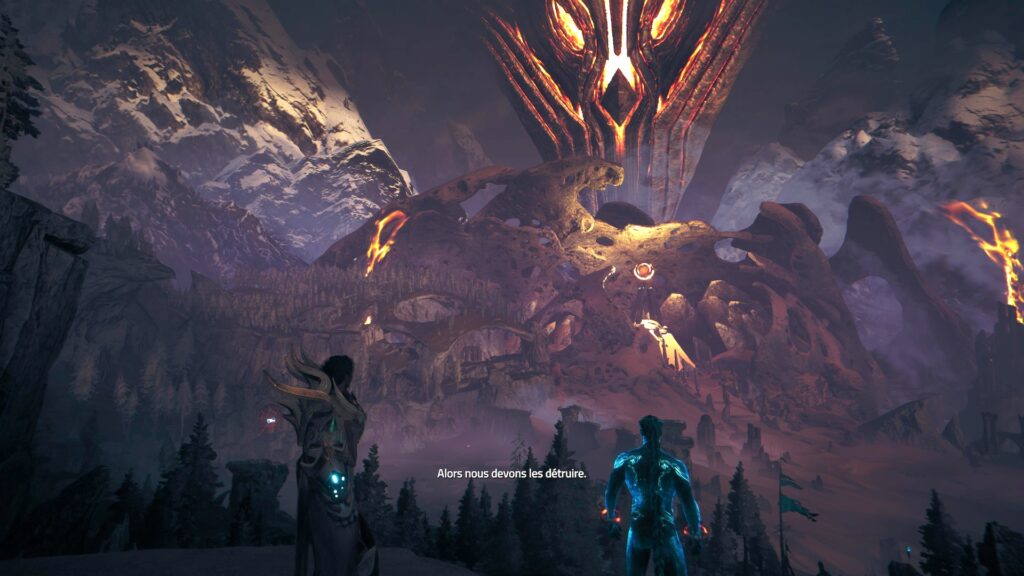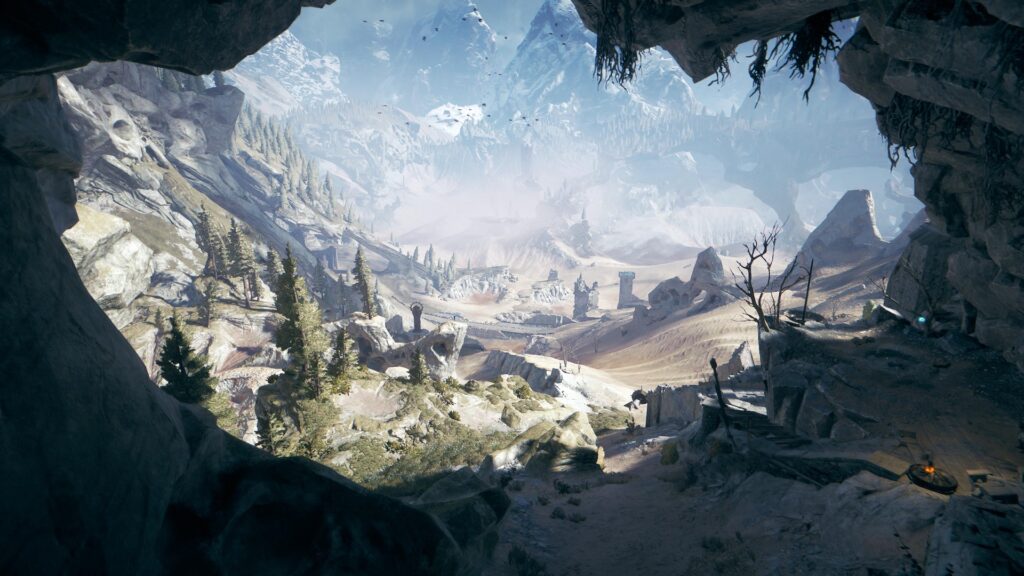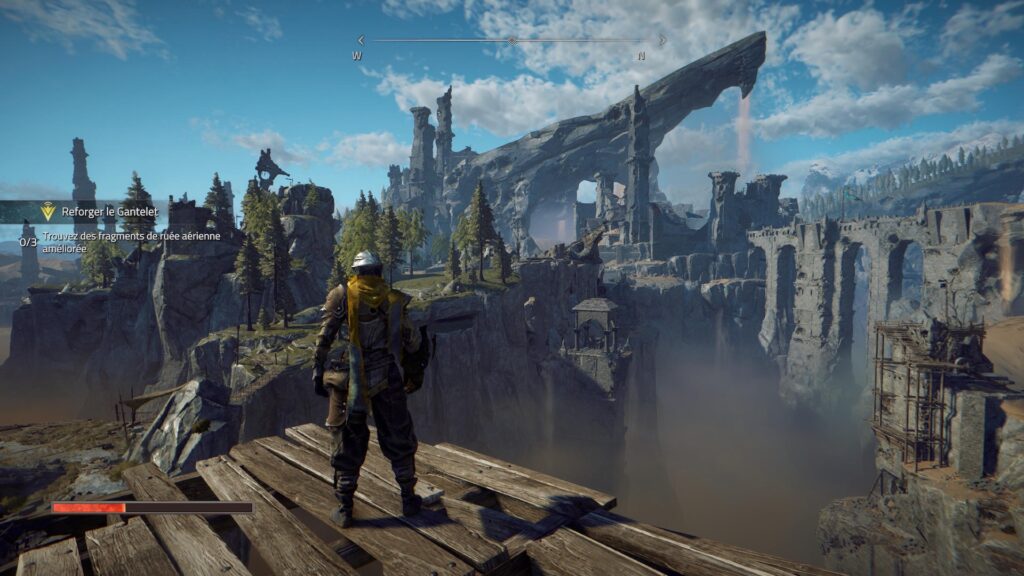We placed a lot of hope in Atlas Fallen, an action/adventure game designed by a studio that had proven a great ability to question itself. Alas, this time, he wanted to put too much.
If we look closely at Deck13’s trajectory, we can only see encouraging progress. After a poor Lords of the Fallena clumsy copy of Dark Souls, the studio has earned a small reputation with The Surge then, above all, The Surge 2 — two other Dark Souls heirs, this time much more successful. Logic would have dictated that an extremely refined The Surge 3 would come out of Deck13’s drawers. But, the developers preferred to go on another project, called Atlas Fallen and available from August 10, 2023 on PS5, Xbox Series S, Xbox Series X and PC.
Atlas Fallen can be considered a brand new start, even if there are obvious affiliations with previous Deck13 games. Dantesque fights, customizable gameplay, increasing power… All in a fantasy universe that makes you want to look at the artworks. During the first two hours, we really liked Atlas Fallen, until everything falls into place. We even thought he would be what Forspoken has never been: a formidable epic in an enchanting universe. Then, lower the masks: by dint of multiplying the ideas, the game is lost and, above all, loses us in a too penalizing lack of finish.
Strong points
- Sliding rides
- Huge customization possibilities
- The first two hours
Weak points
- Insipid art direction
- The camera that gives nightmares
- A lack of finish in all areas
Atlas Fallen is nothing like an Atlas
We can recognize at Atlas Fallen its mystical argument, centered around Gods who exploit humans to harvest resources. There couldn’t be a better starting point to trigger a rebellion, when our heroine or our hero comes across a strange gauntlet from a distant era (and belonging to a less evil deity). Naturally, this weapon is unstable and its bearer must pass several tests to learn to master the object, gain skills and finish with the infamous shadows that terrorize the population.
The game doesn’t look like much
Deck13 doesn’t get much uplifting from the story ofAtlas Fallen, despite an originality that can be praised. As a bonus, we deplore the cruel lack of visual identity: the game really does not look like much from an artistic point of view and cannot even count on a sufficient technical basis (there are countless slowdowns). Therefore, it is difficult to find the desire to venture there for the simple pleasure of the getaway. Atlas Fallen yet provides a rather exhilarating way to move, in this case, the ability to slide on the sand. The sensations are good, but what passes around is demotivating.

Movements are, moreover, constantly hesitant in Atlas Fallen. They even get worse. As we are supposed to become more comfortable reaching places that were inaccessible at first, we lose understanding of where we are really allowed to go. The fault with an architecture of the decorations of a dubious readability (good luck to locate certain objectives) and with a gameplay very floating in the movements. To gain in precision and, a little also, in credibility, it would perhaps have been necessary to further tighten the possibilities offered to the players.
This observation, which confirms that too much is the enemy of good, also applies to combat. Wanted to be more accessible in The Surge and punchy in the approach, they amaze with all the possibilities offered. But they are never followed by finishes that live up to the ambitions. The camera often does its own thing, never helped by the targeting of enemies. The collisions are catastrophic, which makes the strikes soft and random. As for aerial clashes, we still don’t understand anything after having exceeded ten hours of play. We hover for long seconds, then we end up falling without warning. It’s deeply annoying. Same story for the parade, essential to get out of it, but so lax when compared to the punishment represented by the blows received (from monsters who love to rush at us).

In the face of all these grievances that transform brawls into deep ordeal, we still find very interesting inspirations. Deck13 even allows itself to recycle a good idea from The Surge: the obligation to aim for body parts, some offering more rewards when they are destroyed. This point is interesting, but complicates a little more the way in which the camera and the targeting are managed. On the other hand, we appreciate the way in which the powers are directed. There are dozens of them, placed in various categories and which can be upgraded. The subtlety being that they can only be used after having sufficiently filled a gauge (by attacking and parrying).
In short, the more serious and diligent you fight, the more power you gain. At the end of the game, with well thought out builds, you can really become a weapon of mass destruction. This means spending time in the menus to fine-tune everything. On this point, Atlas Fallen is successful. He gives many leads to shape his adventure as we hear it, it is simply in the execution that the shoe pinches. When you have to play, you are overtaken by the harsh reality. Deck13 wanted to be too generous, without having the necessary know-how to master everything.

Note that you can play Atlas Fallen fully cooperative. The fights become logically simpler, but even more messy. Enemies don’t know where to turn, which leads to strange behavior. Of course, a mediocre experience is always more pleasant when it is shared. But, there are so many successful games to play as a duo that it remains difficult to recommend – even for fun.
The verdict
We liked
- Sliding rides
- Huge customization possibilities
- The first two hours
We liked less
- Insipid art direction
- The camera that gives nightmares
- A lack of finish in all areas
Lords of the Fallen, Atlas Fallen…As soon as Deck13 releases a game with “Fallen” in the title, it ironically trips over the carpet. It might be time to put an end to this curse, unfortunately perpetuated by Atlas Fallen. Despite a staggering amount of interesting ideas, the action and adventure game is terribly flawed in the execution, the dressing and the finishes.
It’s a shame, because we expected to see Deck13 transform the try again after a The Surge 2 much more controlled than was its encouraging predecessor. At the time, the studio had been able to learn from its mistakes. There he fell back into his failings through an excess of generosity. To become an Atlas, you have to have strong shoulders.
If you liked this article, you will like the following ones: do not miss them by subscribing to Numerama on Google News.
